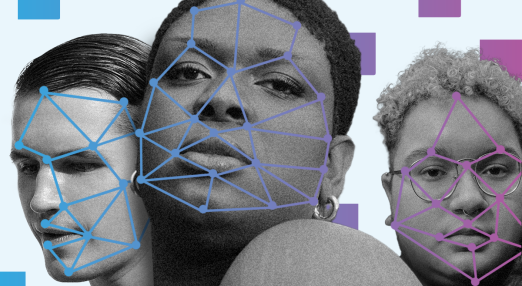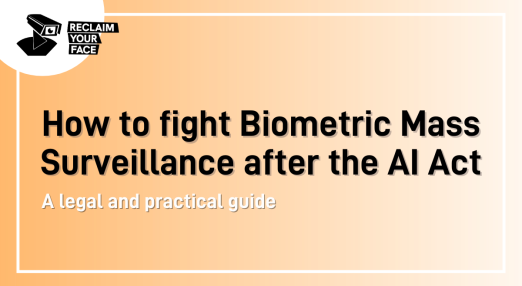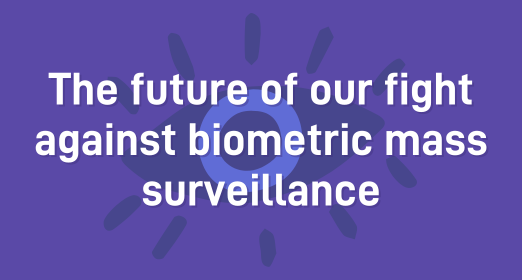AI Act
Filter by...
-

Press Release: Commission’s Digital Omnibus is a major rollback of EU digital protections
Today the European Commission has published two Digital Omnibus proposals, reopening the EU’s core protections against harm in the digital age. This step risks dismantling the rules-based system that was hard-won over decades, endangering the very foundation of human rights and tech policy in the EU.
Read more
-

The AI Act isn’t enough: closing the dangerous loopholes that enable rights violations
While the EU's AI Act aims to regulate high-risk AI systems, it is undermined by major loopholes that allow their unchecked use in the context of national security and law enforcement. These exemptions risk enabling, among others, mass surveillance of protests and discriminatory migration practices. To prevent this, EDRi affiliate Danes je nov dan has published recommendations for Slovenia to adopt stricter national safeguards and transparent oversight mechanisms.
Read more
-

The Commission must uphold the AI Act and fundamental freedoms in Hungary
ECNL, Liberties and the Hungarian Civil Liberties Union called on the EU to protect Pecs Pride participants from AI surveillance.
Read more
-

Open Letter: The European Commission and Member States must keep AI Act national implementation on track
EDRi, along with a broad coalition of civil society organisations, demands urgent action from the European Commission and Member States to ensure that the rights enshrined in the AI Act do not remain hollow promises, but that the Commission and Member States act decisively and immediately to ensure the timely national implementation of the AI Act now.
Read more
-

Open Letter: The EU weakens the rules that safeguard people and the environment
470 civil society society organisations, trade unions and public interest groups are making it clear to European Commission President Ursula von der Leyen, European Commissioners and EU Member States that our rights, planet, health and justice are not for sale. They call on EU lawmakers to protect and promote the rights enshrined in the EU Charter and international human rights law, instead of endangering them.
Read more
-

OPEN LETTER: The European Commission must act now to defend fundamental rights in Hungary
With Budapest Pride set to take place on June 28, 2025, EDRi and 46 organisation are urging the European Commission to defend fundamental rights in Hungary so that Pride organisers and participants can safely exercise their right to peaceful assembly and freedom of expression.
Read more
-

Hungary’s new biometric surveillance laws violate the AI Act
This blog post is a legal analysis of new legislation in Hungary that uses facial recognition technology in a manner that violates the EU Artificial Intelligence Act. Such use of this technology risks discouraging people from exercising their fundamental rights undermining their trust in democracy.
Read more
-

Civil society to European Commission: Act now to defend fundamental rights from Hungary’s Pride ban and the use of facial recognition against protesters
EDRi, along with a broad coalition of civil society organisations, demands urgent action from the European Commission on Hungary’s new law banning Pride marches and permitting the use of live facial recognition technology targeting protesters.
Read more
-

European Commission guidelines on the AI Act implementation must center human rights and justice
Over 25 civil society organisations and experts actively following the implementation of the Artificial Intelligence (AI) Act are urging the European Commission’s AI Office to ensure that the upcoming Commission guidelines clarify fundamental rights as the central guiding basis to enable meaningful AI Act enforcement. They also note note the various shortcomings of the Commission’s consultation process.
Read more
-

Statement: EU takes modest step as AI law comes into effect
The EU Artificial Intelligence (AI) Act will finally come into force on August 1, 2024. While it's disappointing that the final law did not put people and their rights at the centre, it still contains some silver linings.
Read more
-

How to fight Biometric Mass Surveillance after the AI Act: A legal and practical guide
The EU's Artificial Intelligence Act has been adopted, laying out an in-principle ban on live mass facial recognition and other public biometric surveillance by police. Yet the wide exceptions to this ban may pave the way to legitimise the use of these systems. This living guide, for civil society organisations, communities and activists, charts a human rights-based approach for how to keep resisting biometric mass surveillance practices now and in the future
Read more
-

The future of our fight against biometric mass surveillance
The final AI Act is disappointingly full of holes when it comes to bans on different forms of biometric mass surveillance (BMS). Despite this, there are some silver linings in the form of opportunities to oppose BMS in public spaces and to push for better protection of people’s sensitive biometric data.
Read more
